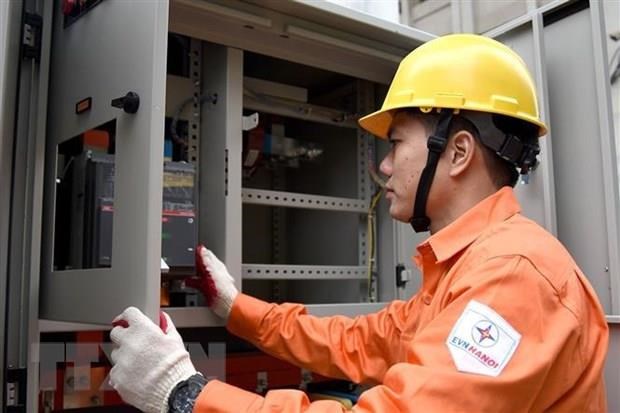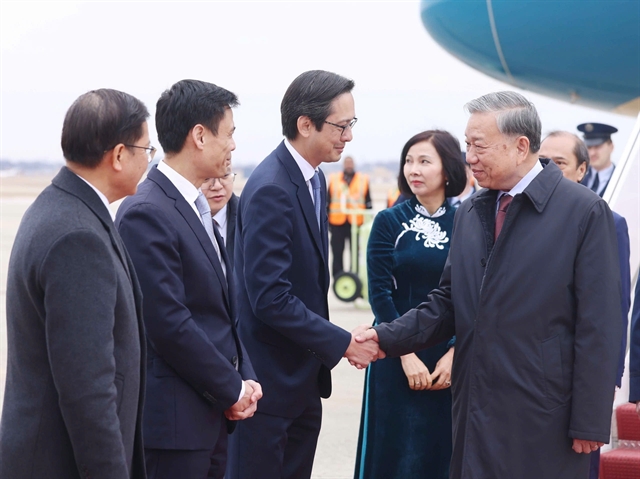 Economy
Economy

Consumers would be able to choose between the traditional step pricing model, which consist of five tiers based on electricity consumption, and a single price model.

|
| A Vietnam Electricity (EVN) worker checks on a power hub in Hà Nội. — VNA Photo |
HÀ NỘI — The Ministry of Industry and Trade (MoIT) is considering new models to calculate electricity prices, including one that would eliminate its current step pricing, which industry experts have called outdated and deeply unpopular among consumers.
Consumers would be able to choose between the traditional step pricing model, which consists of five tiers based on electricity consumption, and a single price model.
The step pricing model sets the tier 1 price at 90 per cent of the average price per unit, which is VNĐ1,864.44 (US$0.08) for 1kWh, tier 2 at 108 per cent, tier 3 at 141 per cent, tier 4 at 160 per cent and tier 5 at 274 per cent.
The single price model has just one price per unit for the first 700kWh, which the ministry argues most low and middle-income households will not exceed. Consumers who choose this model will pay 145 per cent of the average price per unit, roughly the same rate as tier 3 in the step pricing model.
The ministry has also floated a similar scheme with tier 5 set at 185 per cent, compared to 274 per cent in the previous scheme. The single price per unit is, however, set higher at 155 per cent of the average price per unit.
For example, a household that consumed under 99kWh a month would pay VNĐ166,000 under step pricing and VNĐ267,000 under the single pricing.
A household that consumed 800kWh a month would pay VNĐ2.3 million under step pricing and VNĐ2.162 million under a single pricing, a potential saving of VNĐ138,000. The amount of saving would likely become even larger as consumption spikes past 800kWh per month.
Trần Đình Long, deputy chairman of the Vietnam Electrical Engineering Association, said the price per unit under the single price schemes remained too high at 145 per cent and 155 per cent.
He said the ministry may also consider changing to three tiers instead of five before implementing the single price calculation.
Nguyễn Mạnh Hùng, chairman of the Vietnam Standard and Consumers Association, said the new models would benefit up to 30 per cent of consumers with high electricity consumption. Consumers must decide what model fits their needs and gives them higher savings.
Vũ Vinh Phú, former chairman of Hà Nội Supermarkets Association and Nguyễn Tiến Thỏa, former head of MoIT's Department of Price Management, said while it may be easier to apply the single pricing model, the step pricing model may encourage people to be more efficient and less wasteful with electricity consumption. — VNS




